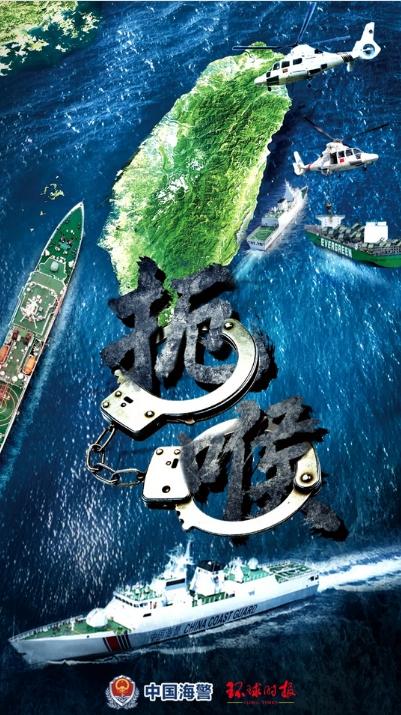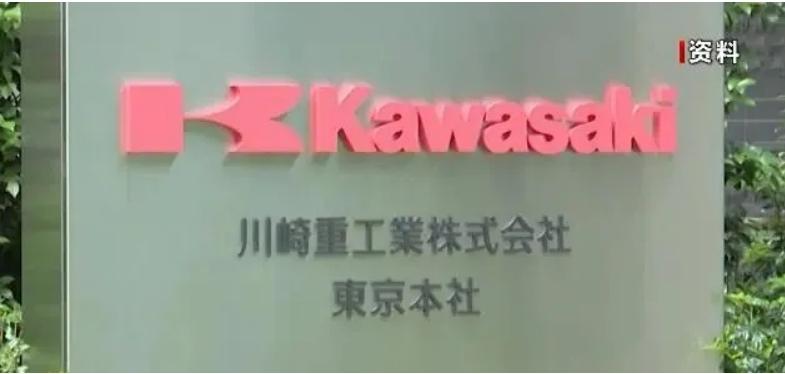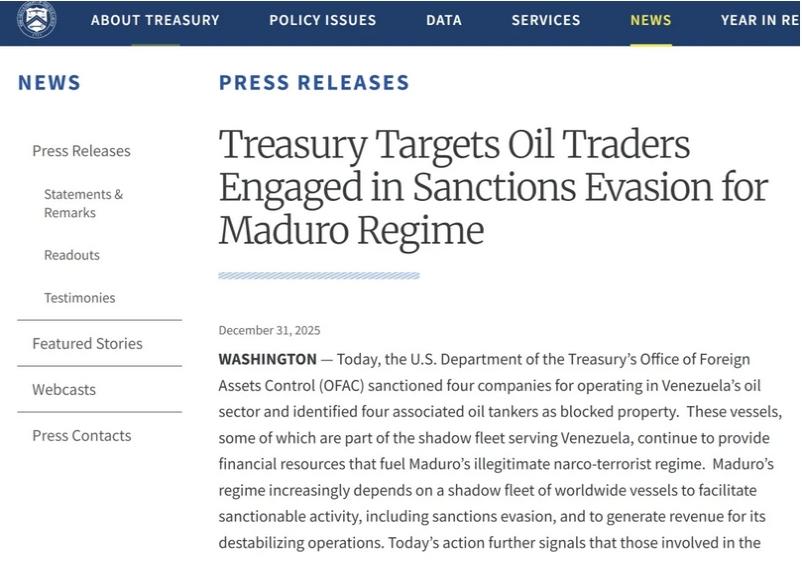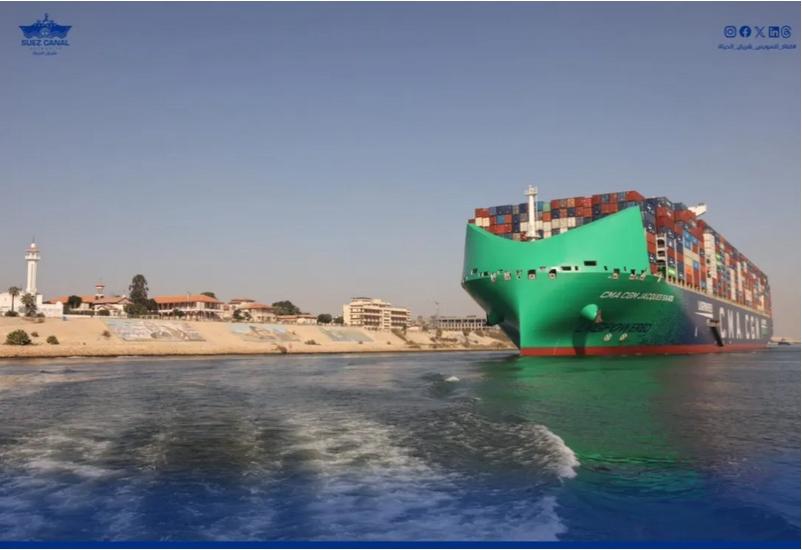
海子可能已经淡出很多人的记忆,唯有那句“面朝大海,春暖花开”还在人世间传唱,经久不衰。沉寂的三月已然过去,四月则从愚人节开始。不管是横卧铁轨还是从高楼一跃而下,都让人遗憾,悲剧不应该如此上演;更让人不可思议和悲恸的是,一场山火,吞噬了几十号消防员的生命。林子没了,可以重栽;可生命只有一次,永远无法重来。在英雄走后任何颂德歌功都无济于事,抚平不了几十个家庭破碎的心。做任何事,都应该安全第一;如同船上生活区前用红色醒目的大字所书写的:SAFETY FIRST。
弃笔十多年再来写小说和杂文已不合适,因此还是乖乖写点航运实务方面的文章。如何在吵架中吵赢律师?前不久看到知乎上有人提问这个问题;哪有这么傻的律师会免费和你吵架。感觉这个回答很有意思。尊重知识,尊重他人的付出,这也是一种修养。如果连知识都不尊重,如何去尊重他人的付出,如何在更高层次上去敬畏生命?
关于修改所指导的学生的论文,复旦大学的陈梁教授在海商法交流群里说:所有的不是自己想出来的东西包括信息、定义概念、思想和说法都要有出处,否则就是抄袭。现在你过了相似性检测并不意味着过一阵子你还过得了相似性检测,因为相似性检测的数据库在不断扩大,之前的外文、繁体字和专著和论文集上的内容随着技术上的更新会被不断加入到检测相似性的数据库中。同时相似性检测可以被欺骗但有经验的读者很难被欺骗。所以以免将来被发现抄袭而被剥夺学位,现在还是老实地把每个不是自己观点的信息和观点都标出出处吧。
这是非常善良的忠告。只有学术诚信,才有真正成就自己学术的可能性。
回到本文的话题,燃油市场波动大,经常有人询问交还船燃油的问题。本文就日常中常见的,涉及还船油量及价格的问题再做解释说明。
第一个例子,很多年前,有一乌克兰的承租人P,期租了很多好望角型的船。该承租人通常都安排船舶到乌克兰的Yuzhny港装铁矿回国内港口卸;当然该承租人几乎都选择到边上俄罗斯港口添加低价燃油,从而赚钱燃油价差。通常合同规定的交还船燃油价格都比俄罗斯港口的燃油价格高。
某H轮期租,最后一个航次,该承租人安排到Yuzhny装货,然后到俄罗斯加满油。过苏伊士运河,亚丁湾,马六甲海峡一路回国,最终安排到京唐港卸。过了新加坡后后,船长通过计算发现,还船油(大约2,350吨)将会比交船油(2,497.4吨)少约150吨,因此要求该承租人在京唐港补重油150吨已达到交还船一致。因为燃油市场下跌,京唐港的油价比合同规定的油价低,于是该承租人想再添加310吨重油,声称有权利按about的上限来加油。
出租人得知这种情况后,指示船长拒绝添加该承租人在卸港京唐港所安排的310吨重油。最终,承租人不得不取消加油安排,随后找出租人索赔损失。笔者当时答复了其中一电邮如下:
Owners wish to remind that as per governing this charter party, bunkerclause which provided that:
Bunker on redelivery about the same quantity as bunker on delivery…
But final quantity of IFO on redelivery is only 2,330 mts as perredelivery notice and join off hire surveyor whom was proposed by thecharterers his figure. Charterers put them in breach of the redelivery bunkerprovision even if they were within a 5% margin of the actual quantities ofbunkers on board as per bunker clause. That meant that the minimum quantity onredelivery was 2,497.4mts less 5% ( 124.87mts ) or 2,372.53mts. In fact, thevessel was redelivered with only 2,330 mts IFO on board, and the Chartererswere in breach in this regard.
Charterers alleged Master refuse to intake their bunker IFO 310mts at Jingtang, which is Charterers’ fault. Master already informed that his vessel take IFO150mts could meet the same quantity on delivery, but the charterersintend to stem 310mts in order to make a trading profit thereafter as the priceof bunker at Jingtang was much cheaper than c/p price. As the additional bunker was not for charterers’ employment service, Master are entitled to refuse to intake those additional bunker. Charterers cancel their bunker plan which istheir choice.
But pursuant to bunker clause, Charterers still have to redeliver withthe contractual quantities minimum 2,372.53mts, and were in breach if they did not.
Held that Owners have to reserve their all rights to claim back against the Charterers due to their breach.
Charterers are called upon to refund illegal deduction in FULL immediately to avoid any unnecessary actions.
出租人认为即使考虑about按5%计算,承租人依然未按照合同条款来还油,构成违约。出租人认为船长已经明确告诉需要添加的还船油量,但承租人为了赚取价差而选择添加310吨,船长有权利拒绝加承租人安排的310吨重油。这个争议涉及到about的差额量及船长是否有权利拒绝添加承租人安排的燃油问题。在回答这些问题之前,接着再来看第二个例子。
某出租人W将某好望角型船C轮航次期租给某承租人,C轮与2018年11月13日在长江口交船,交船时船存燃油HSFO2,024.7.00吨,LSMGO61.50吨。交船后,承租人安排C轮到东澳的DBCT及Gladstone港两港装煤炭,回国内港口卸。
合同的燃油条款如下:
BOD TO BE ABT 1985 MT HSFO ANDABT 139 MT LSMGO
BOR SAME AS ON DELIVERY
Bunker prices usd 510 for hsfo and usd 750 for lsmgo.
鉴于国内港口从2019年1月1日开始均需消耗低硫轻油,尤其是进入渤海湾内的港口,在约1天的海上航行时间内也需消耗低硫轻油,交船的低硫轻油数很可能不足以顺利抵达国内港口。因此承租人要求出租人按合同自己补充低硫轻油。出租人确认电邮如下:
She has sufficient LSGO to enterECA / Arrive at Anchorage in CHINA.
Once voyage charterers have confirmed on first disport CHINA, we shall arrange LSGO for our acct.
C轮于11月28日抵达DBCT,但因严重压港,直到2019年1月26日才在Gladstone最终装完货离港。
开航后C轮确定卸港未京唐港。按C轮船长计算,需添加HSFO1175吨及LSMGO62吨以满足交还船油量一致。但考虑冬季北上航行遭遇东北季风,大风大浪的影响,及出租人安排添加低硫轻油可能的绕航,同时面临国内的春节假期,承租人在2月1日下单,安排在京唐港添加1,300吨重油及80吨低硫轻油。出租人及C轮船长均未提出反对。
随后出租人安排C轮到韩国的Yosu添加低硫轻油;C轮最终于2月14日抵达京唐港,卸货期间添加承租人所安排的燃油;18日完货离港还船,还船油数按联合检验报告,数据为HSFO2,154.00吨,LSMGO70.00吨。
出租人随后认为还船的重油数比交船时多了约130吨,超出交船部分的油量应该按当时的市场价格计算。出租人认为承租人不应该那么早订油,应该在抵港前订,那时候油价更便宜。承租人认为,加油安排是承租人自己的选择,在春节前加油也是常规做法,避免节后涨价的风险。同事,在告之加油计划之后,出租人及C轮船长均未提出反对,因此构成弃权。所以最终的还船油都应该按合同油价HSFO 510美元/吨,LSMGO 750美元/吨结算。
C轮的出租人所发的其中一封电邮如下:
I use theoretical on both. Owners pick and choose. As per their message of 14 feb –‘due to deviation’ is based on actual time and consumption.as per their message14 feb, ‘if no deviation’ is based on theoretical distance 624nm,theoretical speed 11kt, theoretical consumption 28.6mt. The statement below,‘chtrs used the same speed and consumption’, is false.
2.Chtrs specious excuses change every day. At least they now concede that theirclaim they ‘had’ to stem on 1 Feb due to CNY was an opportunistic lie. Today’sexcuse is ‘avoiding risk’, some clairvoyant feeling that the vessel would go toYosu 2 weeks later, and – ‘it’s all owners fault for not stopping us behavingin this way’. None of which are true.
Ownersin no way waived their rights to contractual redelivery, whatever chtrs ‘deem’…. If is a FACT that chtrs are in breach of the cp redeliveryterms. It is a FACT that chtrs knew, or should have known, that a breach wasgoing to occur prior berthing, and with sufficient time to correct their supply. If that breach was a wilful act, owners are entitled to damages. If itwas due to chtrs’ indolence, owners are also entitled to damages.
Finally,if more evidence of chtrs duplicity were needed (it isn’t ) here is master’s request for 1175mt fuel – based on which chtrs arranged 1300mt !!
Chtrs excuses and lies are embarrassing to read. Owners have to accept nothing.
My patience is at an end. Alas, unless full payment received by COB Friday 22March, case will be passed to owners legal department, for recovery by whatevermeans are necessary, without further warning
这两个例子都比较典型,第一争议中笔者处于出租人的位置;第二个争议处于承租人的位置。第一个例子指示船长拒绝添加承租人所安排的额外燃油;第二个例子中,综合考虑各种因素适当多添加点燃油。那么这些做法是否正当?到底孰是孰非?在实务中发生这种争议到底该如何应对?接下来就来看几个判例。
首先来看London Arbitration 15/13案。
在该案中,船舶以NYPE格式期租大约50/60天,合同第7条和第8条规定如下:
7. That the whole reach of the vessel’s Hold, Decks, and usual places ofloading (not more than she can reasonable [sic] stow and carry) …
8. That the captain shall … render all customary assistance with theship’s crew and boats. The Captain (although appointed by the Owners), shall beunder the orders and directions of the Charterers as regards employment andagency; and Charterers are to load, stow, secure, discharge, lash, unlash,dunnage, undunnage, and secure and tally and trim the cargo at their expenseunder the supervision of the Captain, who is to sign or when required byCharterers by their agents to sign on his behalf Bills of Lading for cargo aspresented, in strict conformity with Mate’s receipts.”
承租人将船舶安排到巴西装载50,000mts +/- 10%的玉米,承租人有选择权;到印度尼西亚卸。船舶于2011今年1月13日在巴西装完货,1月15日离港。期间涉及了船方数据和岸方数据关于货物重量的差异,亏舱费,滞期费,更换钢丝缆的费用及还船油量等争议。本文就还船油量部分进行说明。
承租人认为合同条款规定,要求还船的时候燃油与交船大约相同数量(redeliver the vessel with about the same quantities of bunker as on delivery),认为这个about应该给予5%的量;但是出租人认为应该按2%计算。承租人对此提出异议,依据London Arbitration 13/03(2003)620 LMLN 3案,在该案中裁定5%是适当的,通常情况下无法准确计算实际的还船油量。考虑到本案的情况,5%的燃油量相当于船舶一天的消耗量,也是适当的。出租人认为,与速度性能索赔的情况不同,关于还船油量并没有标准认为余量是5%。根据本案的实际情况,偏差量2%是适当的。出租人指出,在抵达卸港前12天就通知了承租人,需要添加133吨燃油以便和交还船油一致。但是尽管如此,承租人在还船之前,在卸港仅安排添加95吨重油。与LondonArbitration 13/03案的情况不同,承租人在还船之前没有任何困难来确定需要添加的还船油量。
仲裁庭认为,该争议的主要焦点是在还船燃油数量的背景下“about”这个措辞的正确含义。在仲裁庭看来,任何绝对接受全面的5%的差额将导致不可接受的情况,承租人试图通过少还5%的差额来节省成本。如果在还船前,能够给船舶添加燃油的话,与之前London Arbitration 13/03案相反,如本案的情况,在卸港可以安排燃油的话,那么承租人需继续安排燃油,那些额外的因为天气等原因造成的延误届时可以考虑在内,因此在本案中不超过2%的偏差将更为恰当,还船油需不少于98%的交船油数,出租人有权利索赔由于承租人少还燃油造成的损失。出租人索赔5,790美元成功。
Held, that the issue was the proper meaning of the word “about” in the context of theredelivery amount. In the tribunal’s view any absolute acceptance of ashortfall of 5 per cent across the board would lead to an unacceptable situationwhere charterers would try to save costs by redelivering with a 5 per centshortfall. If the vessel was able to stem bunkers shortly before redelivery, ashappened in the present case, the further tolerance which might be needed toaccount for unexpected weather conditions seemed to the tribunal to be lessjustifiable than a case where the charterers were conveniently able to stembunkers at the last discharge port a considerable distance from the redelivery port, where sailing conditions might be more relevant to the amount which might reasonably be expected to be on board on redelivery. Accordingly,notwithstanding the decision in London Arbitration 13/03, the tribunal’s viewwas that a shortfall of no more than 2 per cent was appropriate in the presentcase. The respondent should have redelivered the vessel with not less than 98per cent of the amount of bunkers on board on delivery under the charter andthe claimant’s claim for US$5,790 under this head succeeded.
关于燃油的价格问题,如果租约中未规定交船还船的油价,则适用市场油价。如在The“Good Helmsman” [1981] 1 Lloyd’s Rep.378 (C.A.)案中,Ackner勋爵在第419页判决书中认为,在这种情况下,似乎很清楚,法律意味着有义务为该财产支付合理的价格,即市场价格。由于某些特殊原因,燃油的购买者(无论是出租人还是承租人)能够以低于市场价格的显著折扣购买燃油,或者必须支付高于市场价格的溢价,正如学识渊博的法官所说的那样,与当事人无关。当然,没有什么可以阻止各方明确同意以购买它们的价格购买燃油,尽管在燃油成本变化如此大的时期设置实际困难并不难,实际上留在船上的多余燃油的价格应该是多少。但是,如果没有这样的明示,Ackner勋爵认为是一个完全不寻常的协议,那么上面提到的基础-即在船舶交付时或在何时重新交付的港口的市场价格-将被默示。也就是说如果租约中未约定交还船油价,在交船和还船的时候,则默示适用市场油价;因为在承租人在交船,出租人在还船的时候需要按市场油价来购买燃油。
In such circumstances it seems to me to be clear that the law implies an obligation topay a reasonable price for that property, that is, the market price. The fact that the purchasers of the fuel oil, be it the owner or the charterer, for somespecial reason was able to buy the fuel at a significant discount below the marketprice or was obliged to pay a premium above the market price, is, as the learned Judge rightly said, res inter alios acta. Of course, there is nothingto prevent the parties expressly agreeing to buy the bunkers at the price atwhich they were purchased, although it is not difficult to envisage practicaldifficulties in establishing, at a period when the cost of fuel can vary somuch from time to time, what was the price paid for the excess fuel which infact remained on board. However, in default of such an express and, I wouldexpect, a wholly unusual agreement, then the basis referred to above - namely the market price prevailing at the port when and where the vessel is delivered or in this case redelivered - will be implied.
而关于超出合同部分还船燃油价格的结算问题,还得依据特定的情况。比如在London Arbitration17/15案中,租约已NYPE93格式带有附加条款,执行一个从越南到美湾的航次期租,最终该合同执行了3个月零10天才完成。该案也涉及了众多争议问题,有C/V/E计算,LSMGO交船油量,HSFO, LSFO的还船油量,在New Orleans和Mobile的装卸港等待费用及船东费用的佣金问题等争议。
承租人按船长的计算要求定油,结果最终还船的油量在考虑了5%的偏差量后仍然超出交船油量272.427吨。承租人主张超出的部分油价应该按合同的价格,也就是USD500/PMT来结算。出租人则主张超出的部分应该按当时美湾的市场油价USD328.50/PMT算。出租人当时定油的价格为USD408.50/PMT。在如何计算的途径上,出租人提出关于商业合理性的主张,仲裁庭认为符合商业合理性的是出租人应该以成本价格支付额外的燃油。最终裁定承租人有权利找出租人收回多支出的燃油成本,也就是USD21,794.16 (272.427 x (408.50 –328.50)。
The owners’ submissions had referred to “business common sense” and the tribunal believed that the outcome to thispart of the case which accorded with business common sense was that the ownersshould pay for the additional bunkers at cost price. That meant that thecharterers were entitled to an additional US$21,794.16 (272.427 mt x (US$408.50– US$328.50)) to that shown in the owners’ final hire statement.
关于LSFO的问题,在整个航次均没有消耗。仲裁庭指出,没有对实际交付数量进行检量。船上的燃油实际上是在船舶装满后三天半在香港进行测量的。然而,由于船舶在香港之间没有消耗或添加LSFO,因此使用了相同的数字173.035吨。在从Mobile离开到还船之前,测量了LFO,发现其为172.510 吨。这是其中一个测量中的错误还是实际消耗?如果是后者,毫无疑问,承租人必须为此付出代价。如果出租人已经说明了为什么或如何发生这种轻微消费的任何理由,仲裁庭可能会接受它。然而,在没有这种情况的情况下,其中一个数字是错误的并且测量中存在错误。因此,仲裁庭将裁定相同的数字应用于LSFO在交船和还船付时的价值,这意味着应归还出租人的金额减少288.75美元。
The tribunal noted that there was no measurement taken on actual delivery. Thebunkers on board were actually measured three-and-a-half days later at HongKong after the vessel had bunkered. However, as the vessel did not consume IFOLS between or load IFO LS at Hong Kong, the same figure of 173.035 mt was used.
Prior to sailing from Mobile, the re-delivery port, the IFO LS was measured and found tobe 172.510 mt. Was that an error in one of the measurements or was there anactual consumption? If the latter, there was no doubt that the charterers hadto pay for it. If the owners had given any reason why or how that minor consumption might have occurred, the tribunal would probably have accepted it. However, in the absence of such, the probability was that one of the figures was wrong and there was an error in measurement. The tribunal would accordingly rule that the same figure should be used for the value of IFO LS on deliveryand re-delivery. That meant a reduction of US$288.75 in the amount due to theowners.
因此,这种在整个航次中没有消耗,且未添加的情况下,如果出现测量差异,那么应该采纳和交船的数据一致。换句话说,也就是互相不占便宜。需要注意的是本案中,燃油超出部分是由于船长的计算错误导致的;如果不是船长计算方面的原因造成的,则计算方法可能不一样。
接下来来看本文开头第一个争议问题,出租人是否有权利指示船长拒绝添加承租人所安排的燃油。
在The“Captain Diamantis” [1978] 1 Lloyd’s Rep.346(C.A.)案中,Holland Bulk Transport B.V.(以下简称“出租人”)在1974年3月28日与Mammoth Bulk Carriers Ltd(以下简称“承租人”)就Captain Diamantis轮(以下简称“该轮”)签订了一份最少3个月最多4个月的期租合同。合同第3条规定如下:
That theCharterers at the port of delivery and the owners at the port of redelivery,shall take over and pay for all fuel remaining on board . . . the vessel to be. . . redelivered with bunkers as on board but sufficient to reach nearest main bunkering port.
该轮与1974年4月24日交船,租约期间为7月24日至8月24日。在7月24
日,承租人发了基于大约在8月3日在日本的Kakogawa还船的还船通知。在约8/9天后,承租人通知出租人,按照合同第三天所描述的“…all fuel remaining on board…”将给该轮加满油,虽然油量超出了出租人所要求的数量。
在8月2日,出租人指示该轮船长,不接受额外的燃油,并将此情况通知承租人。承租人认为出租人构成违约,于是找出租人索赔损失并提起仲裁。仲裁员作出了对承租人有利的判决。但是商事法院的Ackner法官(当时是)推翻仲裁员裁决。
Ackner法官在第367页判决书中认为这种区别很重要。租船合同对还船时必须在船的燃油量设置了下限。它们必须足以到达最近的主要加油港,对于这些燃油,出租人同意支付规定的价格。但是,第3条对出租人在还船时必须支付的燃油没有上限。因此,如果在还船时燃油实际上满满当当,出租人显然必须为此付钱。该条款的用语绝不含糊不清,对于某些上限的含义无论是在常识还是商业效力方面都没有任何理由。
This distinction is of importance. The charter-party places a lower limit on the bunkers that have to be on board on redelivery. They have to be sufficient toreach the nearest main bunkering port, and for these bunkers the owners agreed to pay the stipulated price. Clause 3, however, places no upper limit on thebunkers for which the owners have to pay on redelivery. Thus, if the bunkers were in fact full to the brim on redelivery, the owners would clearly have topay for them. The words of the clause are in no way ambiguous, and there is no justification either in common sense or business efficacy, for any implication of some upper limit.
Ackner法官认为承租人索赔描述的不同之处在于他对重要性的判断。由于仲裁员认定的事实清楚地表明,这不是出租人拒绝在还船港口支付燃料费用的情况。他们已做好充分准备为此付出代价。他们拒绝允许加入承租人希望购买燃油,其唯一目的是为了获利而转售给出租人。
The difference in the description of the charterers' claim is in my judgment of significance. As the facts found by the arbitrators clearly disclose, this wasnot a case of the owners refusing to pay for fuel on board at the port of redelivery. They were fully prepared to pay for this and did so. They refused to allow to be brought on board the Kobe fuel which the charterers desired topurchase, for the sole purpose of reselling to the owners at a profit.
但是,Ackner法官不认为合同第三条赋予承租人任何权力,要求船长接受燃油,这对于租船合同目的而言绝不是必需的。交易的目的和对象是“在......安全港口之间运送合法商品”。在指示命令发出后,船舶抵达或即将到达10天确定通知中指定的还船港口。该命令是在该轮完成卸货后进行的。因此,租船合同此时无需燃油。当该轮到达还船港口时,已经有最少量的燃油。
I do not consider, however, that the clause confers any power upon the charterers torequire the master to take on board fuel which is in no way required for charter-party purposes. The aim and object of the transaction was the"carrying lawful merchandise between . . . safe ports". The vessel arrived or was about to arrive at the port of redelivery specified in the 10days definite notice when the order was given. The order was to be carried out after she had completed her discharge. The fuel was therefore in no wayrequired for charter-party purposes. The minimum quantity of fuel was alreadyon board when she arrived at the port of redelivery.
最终Ackner法官认为,在这种情况下承租人没有权力要求船长接收更多燃油,因此对特殊案件中提出的问题的回答是关于所查证的事实和租船合同的真正解释-出租人没有遵守承租人的指示并没有违反租船合同。
In my judgment there was no power to require the master in such circumstances to takeon board further fuel, and it therefore follows that my answer to the question posed in the special case is that on the facts found and on the true construction of the charter-party the owners were not in breach of thecharter-party in failing to obey the charterers' instructions to take on theadditional fuel oil and diesel oil in payment. Accordingly, the alternative award in par. K. of the special case must take effect.
承租人不服判决上诉。
上诉法院的Denning勋爵认为,这意味着“在租约服务过程中及其目的”中合理要求的所有燃油。想说的是,应该合理地解释该条款,以便应允许承租人在合理要求的范围内有相当大的自由裁量权。例如,如果在租约期结束前还有两到三个星期的时间,那么如果在此期间可能需要,则不应批评承租人填补燃油舱。应急和储备应该有相当大的补贴:承租人应该按照规定的价格支付全部数量。
It seemsto me that means all the fuel which is "reasonably required in the courseof the charter service and for the purpose thereof". I would like to saythat that clause should be reasonably interpreted so that the charterers shouldbe allowed considerable discretion as to what is reasonably required. Forinstance, if there were two or three weeks to go before the end of the charterperiod, the charterers should not be criticised for filling up the bunkers ifthey might be needed during that time. There should be a considerable allowance for contingencies and reserve: and the charterers ought to be paid for the fullquantity at the stipulated price.
对于仲裁员第5段中所认定的事实如下:
The Charterers did not intend to carry out any further voyage with the vessel and the additional bunkers which they expressed intention to take on were not intended to be used in the performance of, and were not needed for, services under the Charter-party: the vessel had ample bunkers on board for the perioduntil she was to be redelivered in accordance with the definite redeliverynotice given by the Charterers, and to enable her to reach the nearest main bunkering port, as required by Clause 3 of the Charter-party.
Denning勋爵认为在这种情况下,很明显,承租人的意图是仅仅为了在此后获得交易利润而添加这些额外的数量燃油,这根本不是租约服务所需要的。在这种情况下,船长有权拒绝承租人的请求。合同第8条并没有要求船长他接受租约服务所不需要的油。由于他有权拒绝,这就是案件的结局。事实上,这些额外的燃油并没有加入,所以合同第3条根本没有开始运作。
In those circumstances it is plain that the intention of the charterers was to take on these additional amounts solely in order to make a trading profit thereafter.They were not needed for the chartered service at all and, in those circumstances, the master was entitled to refuse the charterers' request.Clause 8 did not require him to take on oil which was not needed for the charter service at all. As he was entitled to refuse, that is the end of thecase. In fact, these extra bunkers were not put on board. So cl. 3 did not come into operation at all.
Denning勋爵认为当然,如果船长把这些额外的燃油加到船上,那将是另一回事。Denning勋爵认为,在这种情况下,正如法官所指出的那样,他们必须按照规定的金额支付。但在这种情况下,真正的意义在于船长是否有权拒绝将这些额外的燃油舱装上(以及填补为出租人预留的燃油空间),只是为了让租船人能够从这些油中获利。在Denning勋爵看来,船长有权拒绝,根本没有违规行为,因此承租人无权要求赔偿。
此外,Denning勋爵认为正如他经常说的那样,在干涉仲裁员和首席仲裁员之前,人们应该犹豫不决,但不幸的是,最后发现自己与学识渊博的法官达成了一致意见,将驳回承租人上诉。
Of course,if he had taken them on board, it would have been another matter. I would havethought in those circumstances, as the Judge rather indicated, that they wouldhave had to have been paid for at the stipulated amount. But the real point in this case is whether the master was entitled to refuse to take these additional bunkers on board (and to fill up the fuel space which was reserved for theowners) simply to allow the charterers to make a profit on this oil. It seemsto me that the master was entitled to refuse, there was not a breach at all,and therefore the charterers are not entitled to damages on that account.
As I have often said, one should hesitate long before interfering with the award of arbitrators and umpires, but unfortunately in the end I find myself in agreement with the learned Judge and I would dismiss the appeal.
从该上诉法院的判决可以看出,例一中,承租人刻意想通过多加还船油来赚取利润的话,船长完全有权利拒绝添加承租人所安排的,和租约服务无关的额外燃油。这种行为并不构成出租人违约,因此承租人将无权找出租人索赔所谓的损失。但是,一旦同意将燃油添加到船上,将不得不按合同所规定的燃油价格结算。承租人有权利提早为船舶安排添加燃油,在合理的范围内承租人有相当大的自由裁量权,因此例二中,承租人有权利安排合理的燃油;出租人同意安排添加,因此必须接受按合同油价来结算。
总结:
航运市场低迷导致不管是出租人还是承租人都试图通过各种手段来增收节支,涉及燃油方面有交还船油量的安排,停租期间燃油消耗的计算及航速索赔中出现的超耗部分燃油的结算等等。在大部分期租合同中,在期租合同中,供应燃油是承租人的责任;在交船之后,承租人支付了燃油款(通常长期租约会要求承租人支付交船的燃油款),那么燃油就变成承租人的财产,直到还船时出租人以合同所规定的价格回购。
对于承租人应向船舶提供租约期间所需要的燃油数量,出租人或船长有责任协助并向承租人提供所有所需要的相关信息,比如油舱舱容表或所需油量的计算,以使承租人能够作出相应的安排。此外,如本文所列举的判例,承租人不得为自己的商业目的额外添加租约服务所不需要的燃油。例如,在市场价格低于任何规定的合同价格的情况下,在还船时为了获得交易利润而刻意多加还船油。
对于承租人而言,另一个潜在的问题由于船舶油舱数量及不能混油的限制,导致无法充分理由所有油舱的舱容,从而导致在合适的港口无法添加到与交船大约一致的还船油。随后出现意外延误,比如港口压港,或者台风等等,导致在还船的时候燃油数少于所需要的数量。在市场价格高于合同中所规定的燃油价格的情况下,少还油将直接面临出租人的索赔。相反,如果市场价格低于合同所规定的燃油价格,也将没有权利要求出租人补偿少还油的差价,即承租人以高于市场价格从出租人手中购买了一部分燃油。
此外,如果数量差异较多,承租人还可能构成违反租约,从而面临出租人的索赔。即使这些情况不在承租人的控制能力范围内,少还油即构成违约。这种情况下,出租人将有权利索赔所有损失。通常损害赔偿的救济是,使无辜的出租人处于他们本应该处于的位置,即承租人已按照合同要求还油。如果因为承租人少还油导致出租人为了能够执行下个航次而不得绕航加油,那么这些额外的损失出租人将可以找承租人追偿。
任何有关此类问题的争议的结果将取决于任何相关租船条款的具体事实和特定措辞。在这方面,重要的是要确保租船合同的这些条款反映了当事人双方之间的真实意图。和之前燃油有关的文章,本文也是一样,通过实例及判例分析,介绍游戏规则供参考,避免在日常操作过程中吃哑巴亏。为避免出现类似问题,不妨考虑在租船合同中加入明确条款,详细说明在还船时,超过交船油量部分的燃油的结算价格,或者少于交船部分数量的补偿价格。
这种明确条款的租约,举一个上诉法院判例。在The “Sounion”[1987] 1 Lloyd’s Rep.231 (C.A.)案中,租约以NYPE格式,其中第8条规定了停租期间燃油消耗的承担问题,包括了厨房煮饭,冷却水等等的消耗。
20. Fuel used by the vessel while off hire, also for cooking, condensing water, or for grates and stoves to be agreed as toquantity, and the cost of replacing same to be allowed by owners.
Donaldson勋爵在第234页判决书中认为,毫无疑问,有可能并且可能不难计算直接或间接使用多少燃油来提供内部取暖,正如所承认的那样,这些燃油属于该短语的范围。然而,原则上似乎没有基础,商业合理性,常识,理由要求出租人在加热时支付用于运行空调设备的燃料费用,但不是吹冷了。对于用于冷却冰箱或冰箱中的食物的燃料也是如此,与用于除霜和加热食物的燃料形成对比。船员的“消耗燃料的放纵”可能属于不同的类别,但怀疑他们对该账单的贡献微乎其微。Donaldson勋爵认同大多数仲裁员的裁决,即合同第20条旨在将出租人的责任扩大到用于船员内部用途的所有燃料,无论是照明,取暖,烹饪还是船员“放纵”。尽管尊重学识渊博的法官,Donaldson勋爵并不认为这个结论可以改善当事人的言论,也不会改写他们的合同。它是通过一种无可救药的可疑和古老的文字形式来寻求渗透到各方意图的结果。
类似地,交还船的情况,也有很多当事人约定as on board。这种情况将导致当事人不得不接受在船的燃油,如果没有过错的情况发生,那么不管数量多少,均得按合同约定的油价结算。例如在The“Pantanassa”[1958] 2 Lloyd’s Rep.449案中,合同第3条规定:
3. That the charterers, at the port of delivery, and the owners, at the port of re-delivery, shall take over and payfor all fuel remaining on board the vessel, the vessel to be delivered with bunkers as aboard at the current Moji price, plus barging (expected about 6/700tons) and to be re-delivered with bunkers as aboard, but not more than 300 tonsat the current price at the port of re-delivery.
由于船长的计算错误,实际的交船油数为936吨,超出了合同所说的600/700吨。出租人和承租人对于超出部分油价结算出现争议。Diplock法官(当时是)在第458页判决书中认为,当船舶以船存燃油交船时,承租人有义务接管并支付船上所存的所有燃油。
It seems to me that when the vessel is delivered with bunkers as aboard, it is the obligation of the charterers totake over and pay for all the fuel remaining on board the vessel. They are leftwith their remedy in damages for any breach by the shipowners of the warranty on their part which I have held is contained in the words "expected about 6/700 tons."
但是同时,Diplock法官认为,被告(承租人)接受所有燃油并不意味着他们失去索赔损害赔偿的权利。
I think, therefore, that the plaintiffs,in claiming the £804 11s., are justified in doing so. But I do not think that the defendants have lost their right to claim damages for the breach ofwarranty merely because they accepted the vessel or took over the vessel with the full quantity, the 936 tons, on board as I think they were bound to do. Ithink, therefore, that the plaintiffs succeed on their claim, but the defendants have established the counter claim.
市场的Cape指数已经跌破100了,作为历史的见证人,只能默默拿起手头的大部头,翻翻看看下回拿什么理由再正当地去扣人家钱或者拒绝人家扣钱。
海运圈聚焦专栏作者 Alex (微信公众号 航运佬)

 2019-04-04
2019-04-04 3276
3276 














